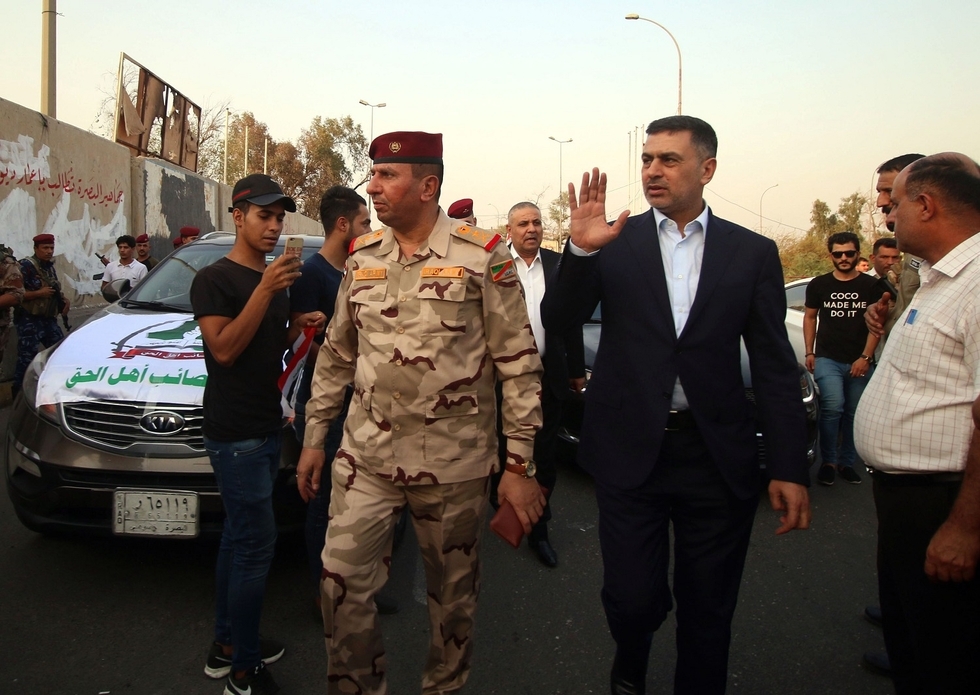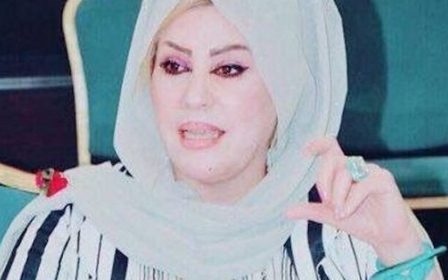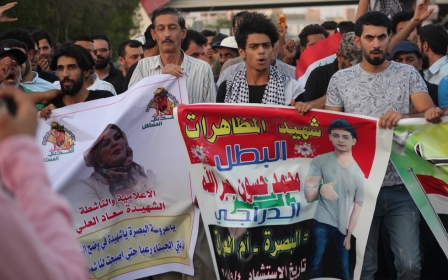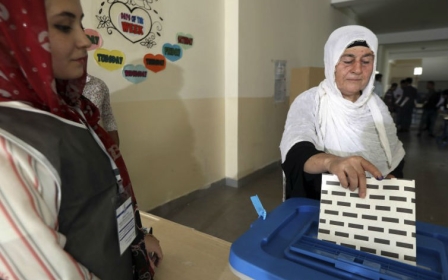Unrest in Basra: US is playing politics, governor tells MEE

BASRA, Iraq - The governor of Basra dismissed claims that the US closed its consulate in Basra on Saturday over security concerns following a mortar attack, and accused Washington of acting for geopolitical reasons.
Speaking to Middle East Eye in the Basra oil ministry - which he has used since his own building was torched by protesters - Asaad al-Eidani also denied that the US's arch rival Iran had "controlling power" in Basra.
Referring to the consulate closure, he said: “It is not about Basra, it’s about the dark situation in the Middle East, like the situation between Iran, the Emirates, the UN and all of these.
"The security situation in Basra in 2003 was far worse and the consulate did not close at that time, so it’s basically an American political decision.”
The US has blamed Iran-backed armed groups, which it claims operate with impunity in Basra, for a mortar attack on the embassy on Friday that caused no damage but led to the temporary closure of Basra International Airport.
If Iran is the controlling power in Basra, their consulate would not have been burned
- Asaad al-Eidani, Basra governor
US Secretary of State Mike Pompeo blamed Iran for "indirect fire" and said consular duties will be assumed by the embassy in Baghdad.
His office also issued an advisory urging Americans to avoid travelling to Iraq.
Eidani said that Tehran's influence in Basra, which is only kilometres from the Iranian border, has been exaggerated even amid angry denunciations of Iran in recent demonstrations.
“If Iran is the controlling power in Basra, their consulate would not have been burned," he said, referring to the torching of Iran's diplomatic office by protesters earlier this month.
“They don’t have controlling power over Basra.”
Basra burning
The city has been rocked by demonstrations since July over water pollution, electricity shortages, corruption and unemployment.
In addition to the Iranian embassy, buildings belonging to powerful Iran-backed militias have also been burned, while videos have shown banners depicting Iranian spiritual and political leaders being set aflame.
Panic in Baghdad led to an emergency parliamentary meeting on 8 September that saw Eidani and Prime Minister Haider al-Abadi furiously exchanging barbs, each accusing the other of responsibility for the crisis.
Eidani said in parliament: “Basra is burning! What we hear from the ministers is like we live in another world. I have persistently said it in the past and say it again that the police commander takes bribes, but no one listened to me."
In response, Abadi angrily replied: "Your place is Basra, not Baghdad!"
Eidani has faced the wrath of protesters, yet has repeatedly claimed that he is powerless to fulfil their demands.
In response to calls for repairs to water facilities and electrical infrastructure, he says it is the central government that is refusing to release funds needed to carry out the tasks.
He also said that the forming of a new government in Baghdad, which has been ongoing since elections in May, has put the brakes on new money coming in.
“The most political issue is investment, and it's all slow because of the new government and new elections and because of the critical issue in Iraq,” he said.
“Once the investment increases, more people will be finding jobs.”
He also suggested that Abadi had failed to take quick action to quell the protests in Basra, which have seen the deaths of dozens of participants, with hundreds of others injured, as well as accusations of police brutality and torture.
Eidani has been governor of Basra since August 2017, when his predecessor stepped down and fled to Iran after allegations of corruption.
A member of the Iraqi National Congress - associated with late opposition leader Ahmed Chalabi - he has been among those who have called for Basra to be made a federal region along the lines of the Kurdistan Regional Government in the north.
New MEE newsletter: Jerusalem Dispatch
Sign up to get the latest insights and analysis on Israel-Palestine, alongside Turkey Unpacked and other MEE newsletters
Middle East Eye delivers independent and unrivalled coverage and analysis of the Middle East, North Africa and beyond. To learn more about republishing this content and the associated fees, please fill out this form. More about MEE can be found here.




